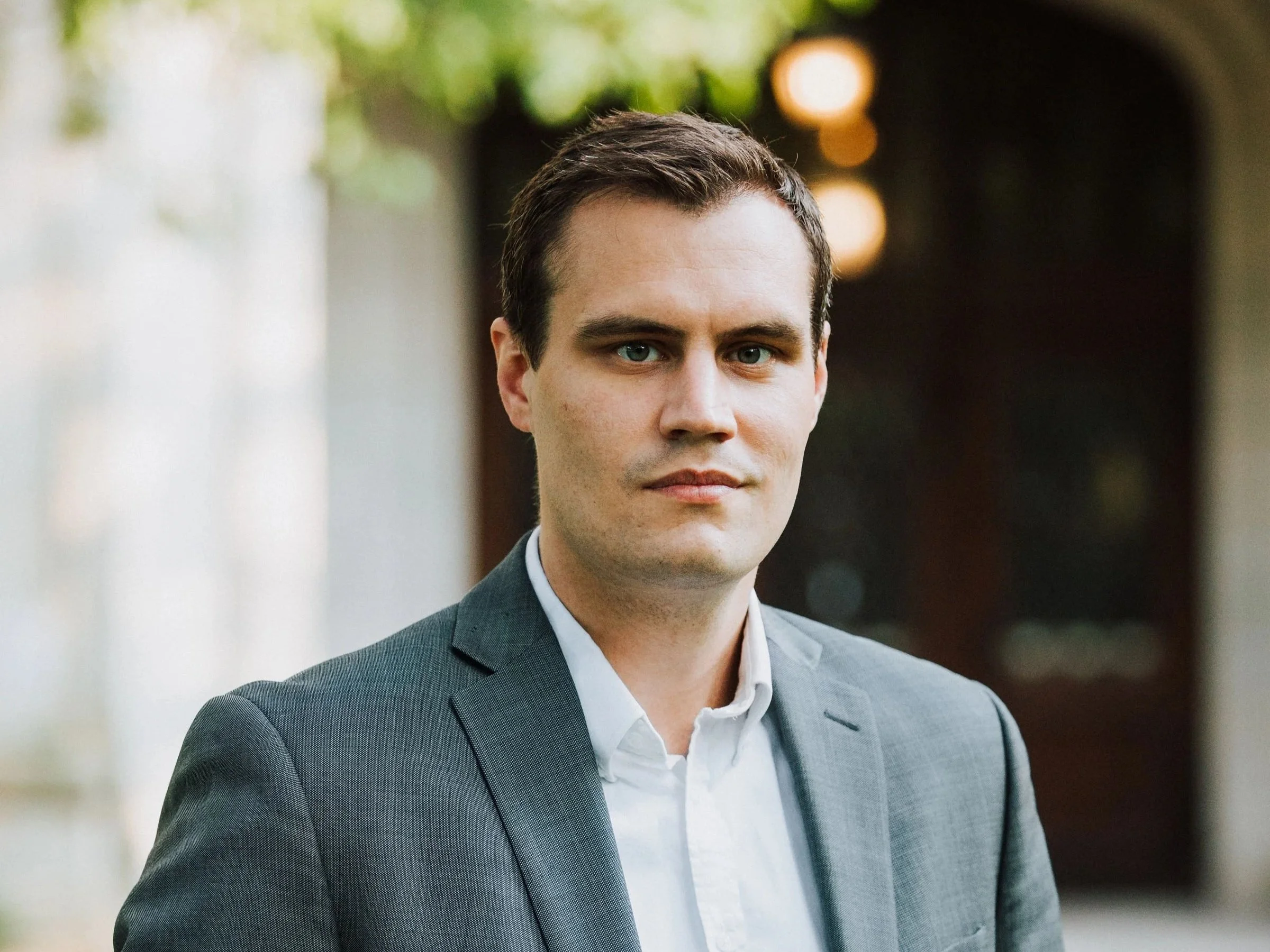Featured J.E.S. Author: Russell Johnson on The Next Word: Tutu and Bakhtin on Dialogical Disagreement
Issue 60.3 of the Journal of Ecumenical Studies is now available via Project Muse. The issue features articles on memory, truth and reconciliation.
For this issue, we highlight Russell Johnson’s essay “The Next Word: Tutu and Bakhtin on Dialogical Disagreement” which can be accessed HERE.
In two sentences, what is the main argument of your J.E.S. article?
Instead of trying to have “the last word,” we should strive to say “the next word”—to respond to others and invite them to respond to us. This dialogical approach is compatible with protest on matters of ethics, politics, and theology because it demands that everyone act responsibly and recognize their interdependence.
In bringing the work of Desmond Tutu and Mikhail Bakhtin into conversation with each other, you explicitly place both in a philosophical context which neither are popularly associated with. What were the challenges in examining these two thinkers outside of the fields to which they are usually assigned?
While Bakhtin insisted he was a philosopher, people think of him primarily as a literary theorist. This is because much of his philosophical work is grounded in the interpretation of novels. Likewise, Tutu is best known for his activism, and his theology of reconciliation is grounded in the situation in South Africa. Fittingly, they are both responsive thinkers—not building a system in isolation but taking inspiration from others and speaking to audiences. The biggest challenge for me was comparing their ideas without compromising the dialogical quality of their thinking.
In your discussion of Bakhtin, you briefly contrast his dialogism with Stalin's project, which "insists it knows the end of history and presumes to have 'the last word.'" How would you contrast Tutu and Bakhtin with Christian projects which see Christ's second coming as a similar moment of inevitable historical completion?
Though neither author says much about eschatology, their work reminds us that any end Christ brings about will only be an end to sin and not an end to our interactions with one another and with God. I see some similarities between their work and dynamic visions of the afterlife, like Gregory of Nyssa’s, in which people are always learning, always becoming more loving, always coming to appreciate more and more of God’s infinite goodness.
In some sense, God will have the last word. But just as God’s power is “made perfect in weakness,” we can expect that this ending will reconfigure how we imagine finality.
You insist on a few occasions that you are not advocating relativism. How have dialogue and relativism become associated, and what are the shortcomings of that association?
For a lot of people, “dialogue” names a way of interacting that is non-confrontational. Especially following the work of David Bohm, dialogue is seen as an open-ended process in which we refrain from trying to persuade one another or figuring out what’s right. It’s easy to slide from “every perspective has something to contribute” to “every perspective is equally true.” By contrast, Bakhtin and Tutu help us think about disagreeing dialogically, which means going beyond “you have your story and I have mine” and into collaborative, and sometimes confrontational, discernment. It is because we care about the truth that we listen to our opponents who might be able to shed light on facets of the situation that we had misunderstood. It is because we care about the truth that we insist on what we know, even if it makes people angry—as Rosa Luxemburg said, “The most revolutionary thing one can do is always to proclaim loudly what is happening.”
How did you get interested in the topic?
I first read Tutu when I was studying nonviolent direct action. As with so many practitioners of nonviolence, Tutu’s ethics is not simply about obeying the command to love your enemies, but encompasses a comprehensive vision of humanity, communication, and social change. While this vision helps us name the evils of apartheid (sadly, something that is still necessary), it can also help us navigate disagreements morally and effectively. That’s something I’ve been interested in for as long as I can remember.
What is your next project?
I am working on my second book, titled Opposites Attract: A Brief Introduction to Dialogue and Dialectic. I’m looking at philosophical dialogue as a genre to explore how the interaction of multiple voices within a text can make readers more engaged and more willing to think outside dualistic, us-versus-them frameworks.
Russell P. Johnson (Mennonite) is the associate director of the University of Chicago’s Undergraduate Religious Studies Program and Core Sequence and was a Divinity Teaching Fellow at the University in 2019–21. He teaches courses on comparative religious ethics, epistemology, and religion and film. He holds a B.A. from the University of North Carolina at Chapel Hill; an M.T.S. from Duke University, Durham, NC; and both an M.A. in philosophy and a Ph.D. (2019) in philosophy of religions from the University of Chicago. His Beyond Civility in Social Conflict: Dialogue, Critique, and Religious Ethics was published by Cambridge University Press in 2024, and Opposites Attract: A Primer on Dialogue and Dialectic is expected from Integratio Press in 2026. A dozen of his journal articles have been published, as have nine book chapters and nearly twenty reviews.
He has also written for more popular audiences and has been a monthly columnist and now editor of Sightings. In addition to public lectures, he has delivered papers at two dozen scholarly conferences throughout the U.S. and in Canada. He has refereed manuscripts, moderated panels, and served as a panelist and a conference coordinator on several occasions. A member of the American Academy of Religion since 2011, he has co-chaired its Ethics Unit since 2023, as well as being a board member of the Fellowship of Protestant Ethics. He is also a member of the Society of Christian Ethics and the Religious Communication Association. This is his second article for J.E.S.


